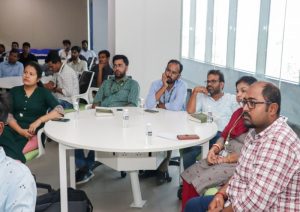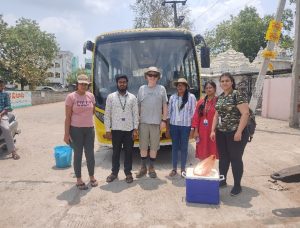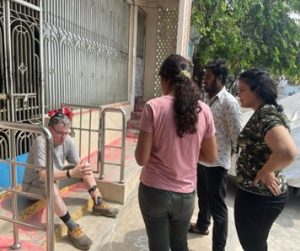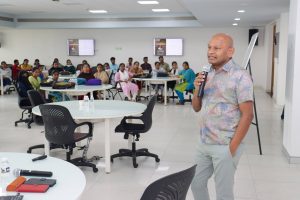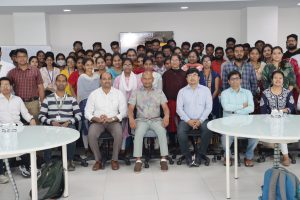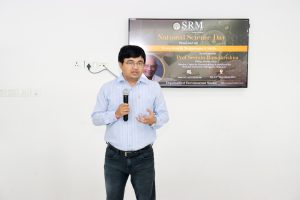Current Happenings ENVS News
- Workshop on Water Resources in India: Challenges and Hazards April 28, 2023
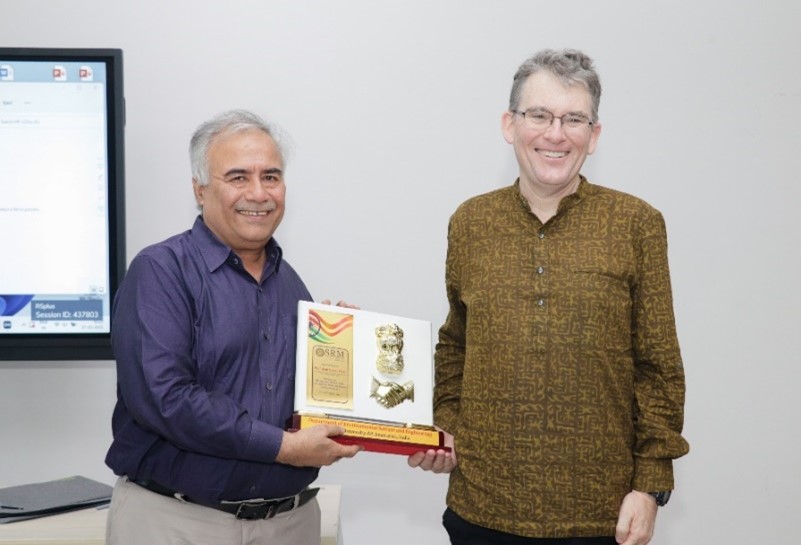
The availability of water as an elixir of life depends on several factors, including land and climate. The Department of Environmental Science and Engineering organised a 2-Day workshop on “How interactions between climate and land use/land cover changes can affect water resources” on March 27 and 28, 2023, in affiliation with the Department of Earth and Environmental Science, University of Kentucky, USA. The workshop was inaugurated by Vice Chancellor Prof. Manoj K Arora. Distinguished academician and researcher, Prof. Alan Ernest Fryar, Department of Earth and Environmental Science, University of Kentucky, was the resource person for the session.
The workshop was conducted with the aim of providing an overview of water resources in India, water resource challenges and hazards, climate change and projected effects, and mitigation and adaptation strategies. Prof. Fryar also explained the groundwater status across India and regional approaches to exploring it as a drinking water resource. He also explained the impact of climate change on groundwater as a fresh drinking water resource and adaptation strategies.
The workshop saw the participation of over 60 faculty, PhD Scholars and UG students from various educational institutions across the district. UG students from the Department of Geology, Hindu College and Chalapathi Institute of Engineering and Technology, Guntur, participated in the session and interacted with Prof. Fryar.
A field visit to the Krishna Riverbank in Amaravati, Guntur, was also conducted as part of the workshop on March 28, where Prof. Fryar interacted with the research scholars and emphasised the importance of field visits and the scientific and systematic way of sample collection from the field. In addition, Prof. Fryar conducted hands-on training on the field instrument (multi-parameter probe, Hanna) for real-time data collection from the river water and groundwater sources in the field.
Continue reading → - Polydisciplinary Approach: Key to Green Economy March 10, 2023
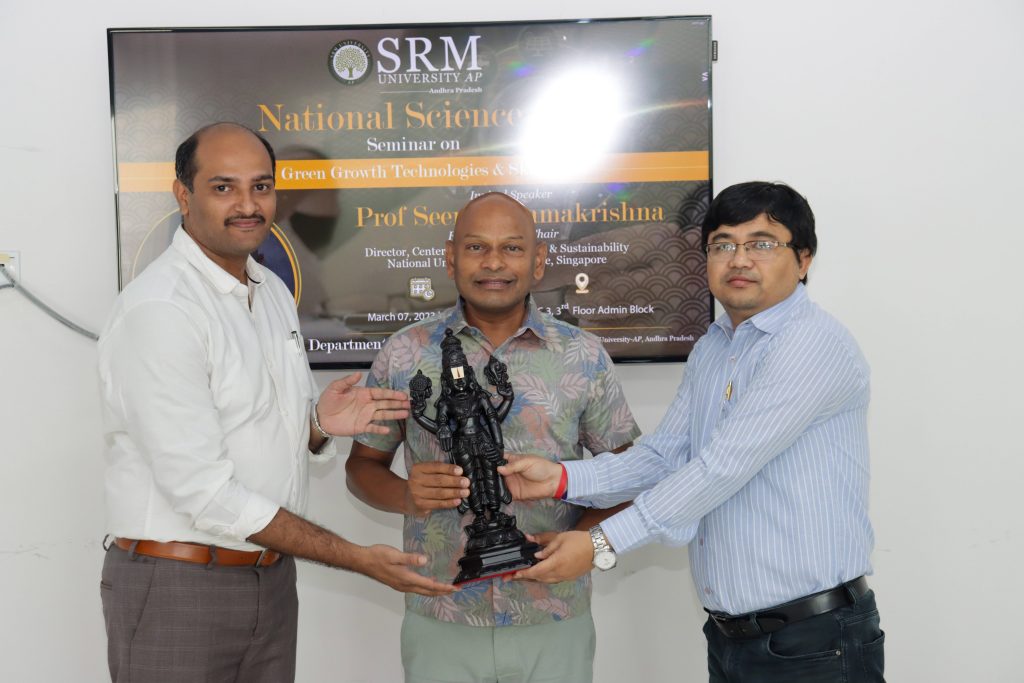
The Department of Environmental Science and Engineering, SRM University-AP organised a National Science Day seminar on “Green Growth Technologies and Skills” on March 07, 2023, to promote awareness on the critical need for sustainable development and a green economy for human sustenance. Prof. Seeram Ramakrishna, FREng, Everest Chair, Director-Center for Nanotechnology & Sustainability, National University of Singapore delivered the session in the presence of Prof. Ranjit Thapa, Dean-School of Engineering and Sciences (SEAS); Dr Karthik Rajendran, Head- Department of Environmental Science and Engineering; Dr Shoji D Thottathil, Assistant Professor, SRM AP and other faculty and students of the university.
“Many challenges and needs of human beings which include climate change, extreme weather, biodiversity loss, food supply, nutrition, healthcare, security, urbanisation, sanitisation, clean water and energy, resources, shelter, transportation and circular economy demand polydisciplinary knowledge and effort,” said Prof. Ramakrishna while addressing the audience. He emphasised that a circular economy or Global commons requires the cooperation and contribution of countries and communities to actualise progress in sustainability. In his talk, Prof. Ramakrishna posited that India had undertaken a progressive stance that will lead to clear advancements in the next 25 years with respect to demographics, economic policies etc.
Prof. Ranjit Thapa, Dean – SEAS remarked that SRM University-AP as a research-intensive institute, with an interdisciplinary academic approach and a culture of research, entrepreneurship and innovation, will promote green growth technology and sustainable development as an integral part of the academia. The seminar was also attended by undergraduate and postgraduate students from neighbouring colleges including Andhra Loyola College, Hindu College, and KBN college. A memento of appreciation was presented to Prof. Ramakrishna by Prof. Ranjit Thapa and Dr Karthik Rajendran. Dr Pankaj Pathak, Assistant Professor, Department of Environmental Science and Engineering delivered the vote of thanks.
Continue reading →


